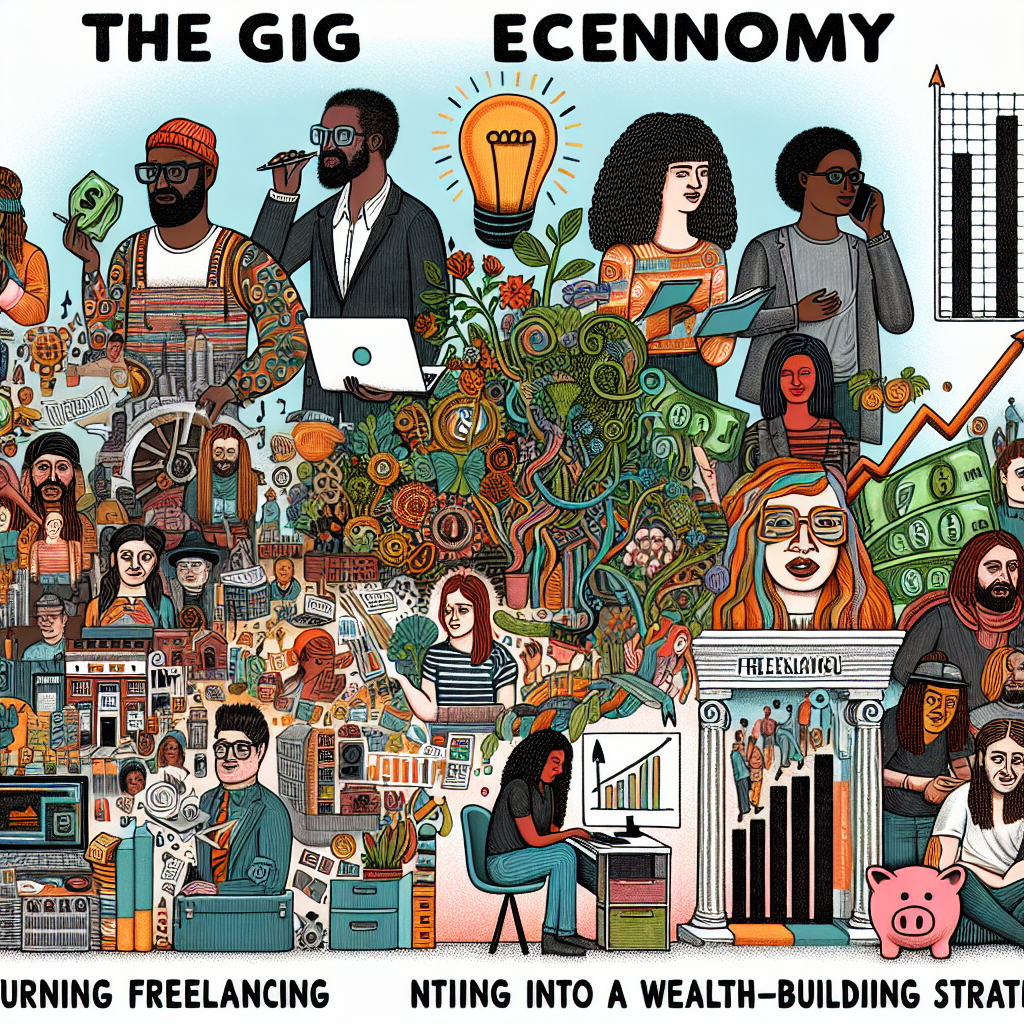The gig economy has surged in popularity over the last decade, transforming the way individuals work and earn a living. With the rise of online platforms and technology, freelancing has become a viable option for many, enabling them to turn skills into a lucrative wealth-building strategy. In this article, we’ll explore what the gig economy is, its pros and cons, and strategies freelancers can implement to build their wealth.
Understanding the Gig Economy
The gig economy consists of short-term, flexible jobs that are often facilitated by digital platforms. These jobs can range from ride-sharing, freelance writing, graphic design, programming, and many more. Unlike traditional employment, gig workers are typically independent contractors or freelancers, which allows for increased flexibility but also comes with unique challenges.
The Benefits of Freelancing in the Gig Economy
Flexibility and Control
One of the most enticing aspects of freelancing is the control it grants workers over their schedules and the projects they undertake. Gig workers can determine when and where they work, allowing for a work-life balance that permanent positions may not provide.
Diverse Income Streams
Freelancing opens the door to multiple income sources, reducing risk and increasing financial stability. Instead of relying on a single paycheck, freelancers can take on various projects, leading to potentially greater earnings.
Skill Development
Working on various projects allows gig workers to continuously develop and diversify their skill set. This continuous learning can lead to new opportunities and higher rates for specialized services.
Lower Startup Costs
Compared to starting a traditional business, freelancing typically requires less capital upfront. Most freelancers can start simply by leveraging their existing skills and utilizing free or low-cost online platforms.
Challenges in the Gig Economy
Inconsistent Income
While freelancing allows for the potential of higher earnings, it can also lead to periods of inconsistency. Freelancers may experience feast-or-famine cycles, making financial planning essential.
Lack of Benefits
Freelancers often miss out on benefits like health insurance, retirement plans, and paid time off. It’s crucial to budget for these necessities when working independently.
Isolation
Working independently can lead to feelings of isolation. Freelancers may miss the social aspects of a typical workplace, which can affect mental well-being.
Tips for Building Wealth as a Freelancer
1. Set Clear Financial Goals
Establishing specific, measurable financial goals can help freelancers focus their efforts. Whether it’s saving for retirement, purchasing a home, or building an emergency fund, setting targets can guide decisions and motivate action.
2. Diversify Your Services
Freelancers should consider expanding their skill sets or offering complementary services. By diversifying, they can attract a wider range of clients and demand higher fees.
3. Build a Strong Personal Brand
A strong personal brand can distinguish freelancers from their competition. Create a professional website, showcase testimonials, and use social media to communicate your expertise and attract clients.
4. Invest in Continuous Learning
The gig economy is constantly evolving. Staying updated with industry trends and investing in continuous education can give freelancers a competitive edge, allowing them to command higher rates.
5. Use Financial Tools
Taking advantage of financial management tools can simplify tracking income, expenses, and savings goals. Consider apps that help set budgets, invoice clients, and save for taxes.
6. Network and Collaborate
Networking with other freelancers can lead to valuable collaborations and referrals. Participating in relevant online communities and attending industry events can help freelancers build relationships that foster growth.
Conclusion
The gig economy presents a fantastic opportunity for individuals looking to turn their freelancing career into a wealth-building strategy. By understanding the pros and cons of the gig economy and implementing actionable steps, freelancers can not only secure financial stability but also create wealth over time. With determination, strategy, and a willingness to adapt, the gig economy can serve as a fruitful avenue for building a successful financial future.

